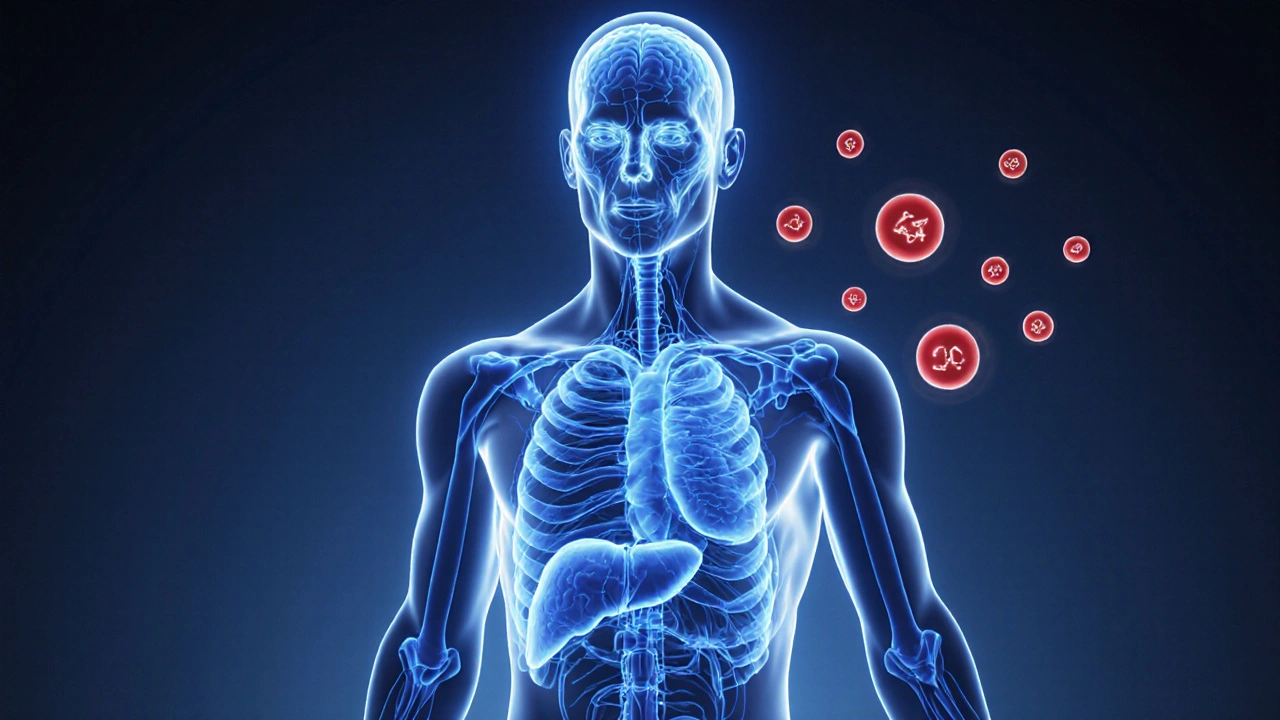When you stop eating for three days, your body doesn’t just sit idle—it switches modes. This process, known as hladovění, dobrovolné přestání příjmu potravy na kratší dobu s cílem podpořit tělesnou obnovu. Also known as intermittent fasting, it’s not a diet, but a signal to your cells to clean house. Many think it’s about losing weight fast, but the real change happens deeper—in your metabolism, your hormones, and even your brain.
Your body starts using stored fat for energy after about 12 hours without food. By day two, it begins producing ketones, which your brain actually prefers over sugar. This is when many people feel clearer-headed, less bloated, and more focused. But it’s not magic—it’s biology. Your insulin drops, your growth hormone rises, and your cells start removing damaged parts through a process called autophagy. This is the same mechanism science links to longer life and better cell function. Still, not everyone should do this. People with diabetes, pregnant women, or those with a history of eating disorders should avoid it. Even for healthy people, it’s not about pushing limits—it’s about listening to your body.
What you might not realize is that metabolism, soubor chemických reakcí, které tělo používá k přeměně potravy na energii doesn’t slow down during short fasts. In fact, it often speeds up slightly. The myth that your body goes into "starvation mode" after 24 hours isn’t backed by real science. What does happen is that your body becomes more efficient. You burn fat better, your inflammation goes down, and your gut gets a break. But if you come back to eating with a pizza or a bag of chips, you undo most of the benefit. That’s why people who try this often report better food awareness afterward—they start noticing how certain foods make them feel sluggish or bloated.
And what about detoxikace, přirozený proces, kdy játra a ledviny odstraňují škodlivé látky z těla? Your liver and kidneys are always detoxing. You don’t need special teas or juice cleanses. Fasting simply gives them less to process, so they can focus on cleaning up old cellular debris. It’s not about flushing out toxins—it’s about letting your body do its own job without interference.
What you’ll find in the posts below are real stories and practical advice from people who’ve tried this, and from a doctor who’s seen the results. You’ll learn how to do it safely, what to expect on each day, and when to stop. You’ll also see how it connects to sleep, stress, and even your daily eating habits. No extreme claims. No miracle cures. Just what actually happens when you stop eating for three days—and how to make it work for you.

Co se stane, když nebudete jíst 3 dny? Tělo přepne do režimu přežití - spaluje tuk, aktivuje autofagii, ale může poškodit hormony a svaly. Více o bezpečném hladovění a kdo by to měl dělat.
Číst více© 2026. Všechna práva vyhrazena.